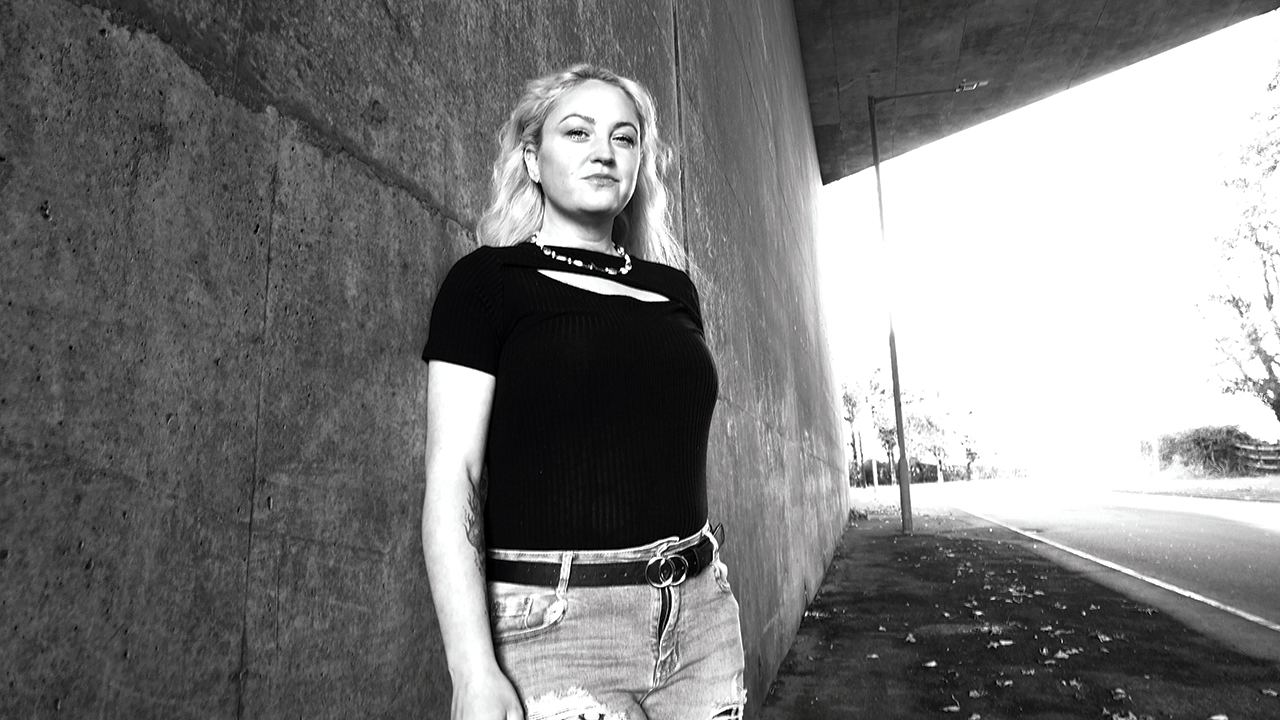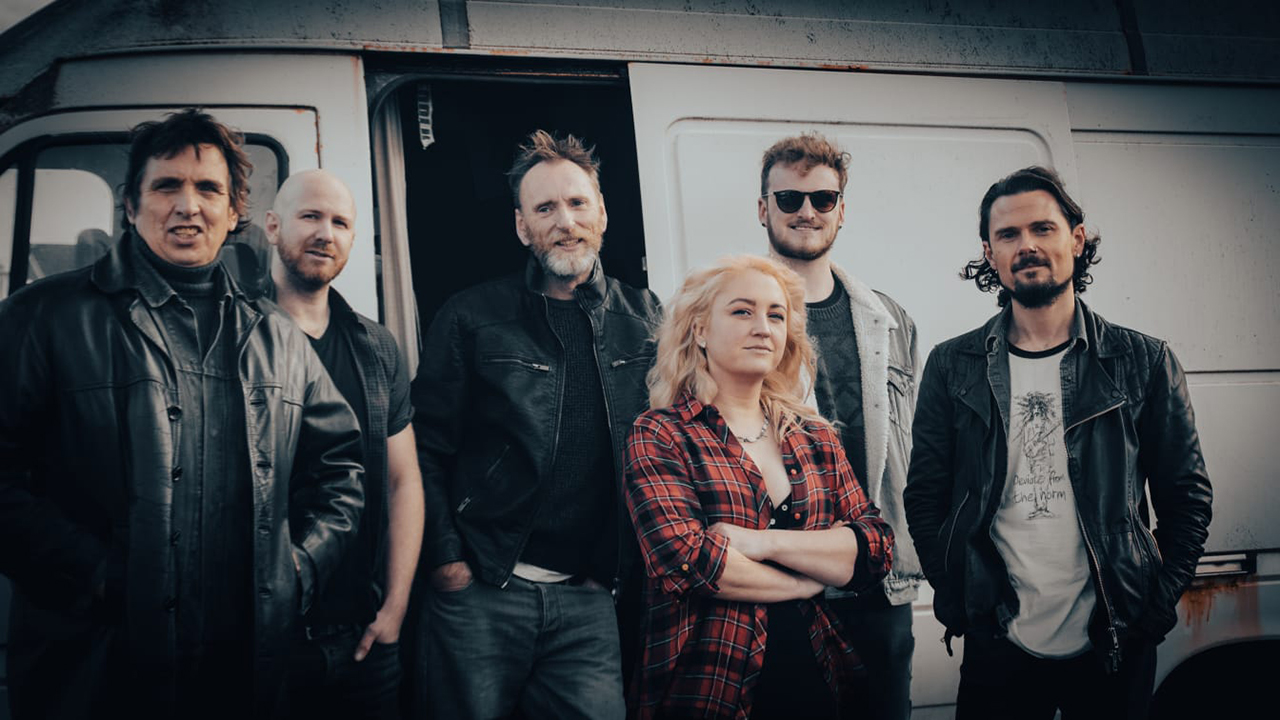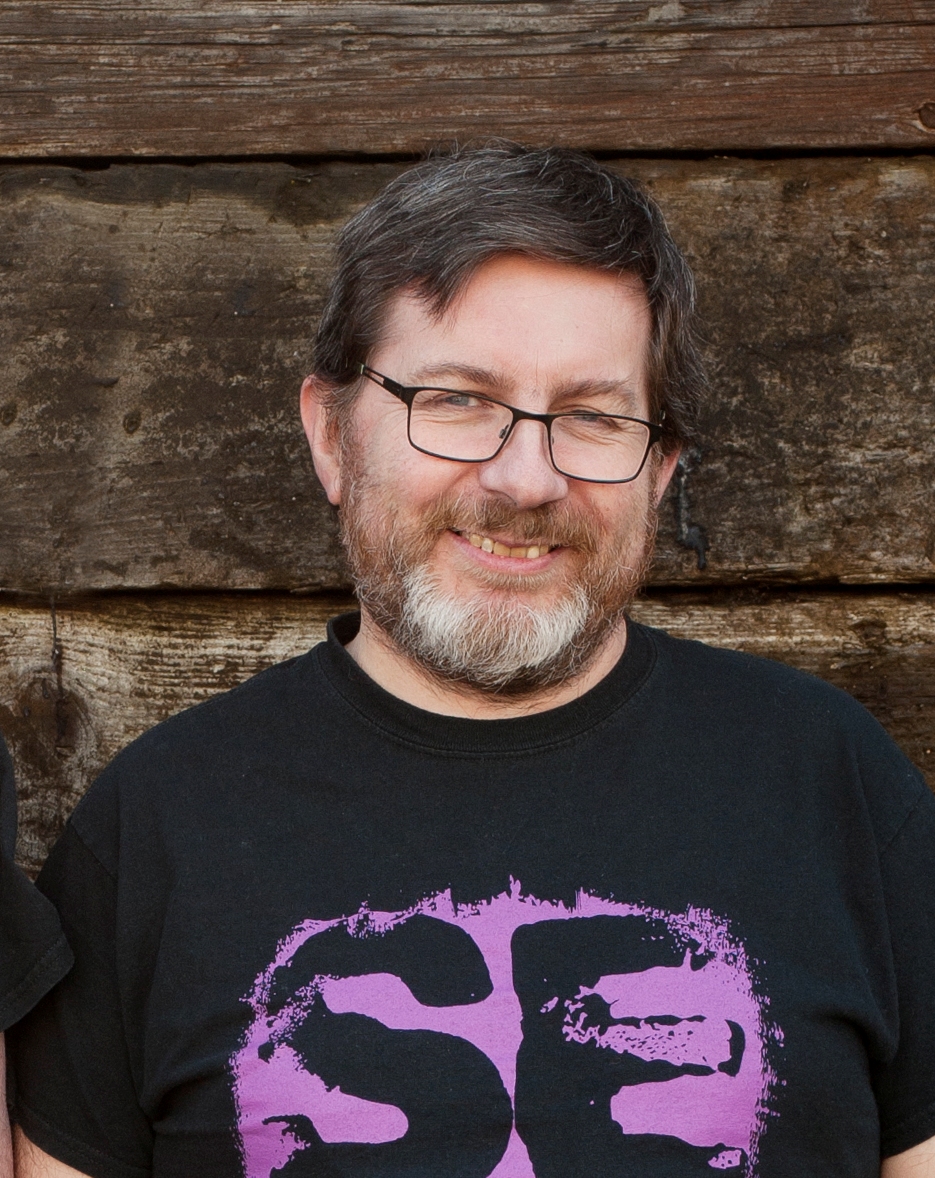With their third album Random Karma, Fate And Destiny Welsh prog rockers Last Flight To Pluto took a different approach to their music making. In 2022 Prog spoke to Alice Freya and Darren Joseph to find out more...
“At one point, I had men swinging punches at me. It’s a good job I can handle myself.”
Prog is talking to Alice Freya and Darren Joseph, vocalist and drummer/songwriter respectively of South Wales-based band Last Flight To Pluto. Having asked them about the band’s origins, Alice – all 5ft 3 of her – is reminiscing about a particularly arduous gig on the Sandfields Estate in Port Talbot.
“All the members of Pluto were in the covers band that Alice and I ran,” continues Darren. “It’s a hardcore circuit in South Wales, very rough and ready.”
“Every dive you can think of. We’ve played it,” chimes in Alice.
Darren continues. “At this particular gig, I don’t think the locals took a shine to me. I’m tall – 6ft 5 – and at the time I had a foot-high Mohican. This dislike carried through to the entire band. It wasn’t pretty.”
It’s hardly the standard start to a prog career, which is more likely to begin with noodling in a bedroom than a fight in a South Wales club, but it was this gig – and many others like it – that convinced the band that they had to create their own music. So, they started pooling their gig money around 2014 with a view to paying for studio time to record their first album, which became See You At The End in 2015 followed by A Drop In The Ocean in 2019.
Both albums have a similar structure – six songs each, averaging at around eight minutes per track – but for their latest record, Random Karma, Fate And Destiny, it’s clear that the band have modified this approach somewhat.

“It began in lockdown,” Darren says, “I realise that every musician in the world decided to use the time to write an album, and that’s exactly what I did in my home studio.”
The band’s method is that Darren puts the music together with Alice contributing mainly lyrics, although Last Flight To Pluto are unusual in that while Darren and Alice are essentially ‘the band’, they have a group of favourite musicians that always take part in the recording process, particularly guitarists Jack Parry and Ryan Barnard, whose jobs are to make sense of Darren’s musical ideas and to form the core of the live band when available.
“We’ve tried to get a steady live band together,” Darren admits, “but Jack is incredibly busy. He’s a working musician so he’s always out playing. As a result, he wasn’t available for Winter’s End Festival [in] Chepstow, for instance. Luckily, we have other musicians to call on if we need them.”
It’s pleasing to hear that spontaneity is a major factor when the musicians are recording. It’s something that Darren and Alice swear by. “We don’t believe in over rehearsing,” Darren says. “The boys work on their parts at home and then we go for it in the studio. I like people that will turn up, have the vibe on and play out of their skins for an hour. Practise something too much and you start picking holes. The same applies to mixes. A wise man once said, ‘Mixes are never finished, they are abandoned.’ I like that philosophy. We know when to walk away.”
Prog suggests that while keyboards aren’t the most prominent texture in the band’s music, played largely in the studio by the recently self- taught Darren, they are very much a part of their overall sound. Have they ever thought of bringing in a permanent ivory tinkler?
“There aren’t many keyboard players in South Wales,” Darren admits with
a resigned shrug. “In all our time playing on the covers circuit, we never came across one. At the moment we use sequencers live, but that means as the drummer I’m always hanging on to a click track. If you lose one beat, you’re finished, so that makes gigging less enjoyable. But we’d love to find a keyboard player eventually.”
Random Karma, Fate And Destiny, is a major advance over the first two albums, with a greater emphasis on melody and songwriting. With nine songs rather than six, the average track length has also come down by several minutes. Crucially, this hasn’t made the album any less prog.
Darren agrees. “In the past, particularly on the first album, the track lengths were down to my naïveté as a songwriter. But then I realised that we’ve got a really good singer, so she needed to be heard more. I decided that we needed verses and choruses. When I was presenting these shorter songs to Alice, she said, ‘This is new,’ and when I told the guitarists that their solos could only be eight bars long, there was a little disappointment. After all, what would Gilmour say?”

But the end result is that the songs, while shorter, pack a huge amount of information into relatively brief running times. A perfect example is We’re Being Rewired, a track that has three distinct parts but presents them over a concise six-minute running time, as opposed to the nine minutes on past Pluto albums that might have felt just a touch flabby.
Darren agrees: “As soon as Alice has said what she needs to in the lyrics, we move on. Simple as that. Some bands nail long, complex compositions, but we feel our style is to now ram 20 minutes into five.”
Alice adds, “I call my age group the McDonald’s generation. We want everything now, free of charge and we have almost no attention span. But we need to get a younger generation on board with prog and I think there’s a massive gap in the market waiting to be tapped. If we can do anything to draw them in, let’s do it.”
As well as being the proggiest song on the album, We’re Being Rewired has some perceptive lyrics about society. “So many are being controlled and living a fake lifestyle,” continues Alice, “being told how to look and how to behave. There’s also a keyboard warrior culture, where people will post things on social media that they would never say in person.”
The slightly hippie-sounding title of the new album grew out of the adversity that many people have faced over the last couple of years, which included when a friend of the band – ‘Random’ Ross – a drummer named for his uncertain relationship with the beat – died just as the writing process was being completed.
“It’s named for him and the rest of the madness that was going on at the time,” says Alice.
The themes of the album – except for one happier song, Around The Corners – are about changes in life; about moving on, for better or worse.
“Alice nailed the lyrics. We definitely needed a ‘real life’ approach, after all we’ve been through,” says Darren.
“These are real-life stories that people can relate to,” adds Alice. “The song Some Of Us is about that politician [Rishi Sunak] during Covid that told musicians to retrain and get real jobs. The lyrics are saying that some of us can’t do nine to five jobs. We have this passion inside us that means we have to go and make music. Many people in the arts would say the same. We should be celebrating music; we can’t take the urge to perform away from people. That song was basically me telling that politician where to go.”
Overall, the album combines direct, powerful and relevant lyrics with some extremely varied yet strong arrangements. However, we’ll leave the last word with Alice, to sum up how she and Darren perceive the band. “I like to say that we’re prog but with a bit of kick-ass rock’n’roll thrown in.” It’s hard to argue with that.

